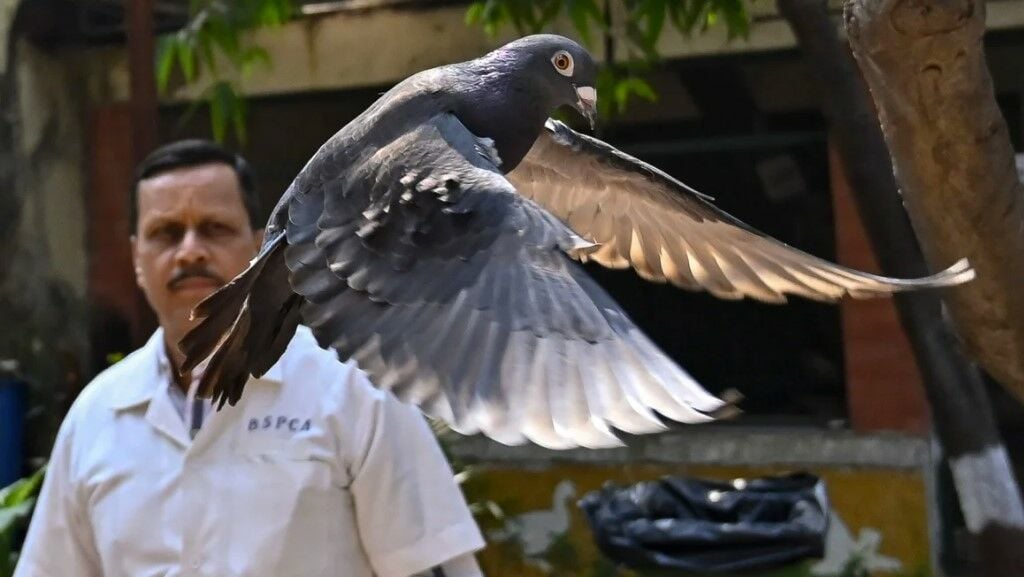Stop the pigeon! Chinese bird evades dastardly espionage suspicions, flies to freedom

In a plotline more fitting to the 1969 children’s cartoon series Dastardly and Muttley in Their Flying Machines attempting to “Catch the Pigeon,” a pigeon suspected of espionage for China was finally freed after eight months in captivity, thanks to the intervention of animal rights crusaders, PETA.
The bird’s release from the clutches of Indian officials this week marks the climax of a bizarre tale that captivated the world.
“PETA India leapt into action upon discovering that a pigeon had been held at the Bai Sakarbai Dinshaw Petit Hospital for Animals (BSDPHA) in Parel for an astonishing eight months.”
The pigeon’s plight took off in May last year when it was apprehended near a Mumbai port, its wings bearing cryptic inscriptions resembling Chinese characters, according to PETA. The suspicious markings triggered espionage fears, prompting authorities to detain the bird and subject it to a medical examination at Mumbai’s BSDPHA as part of an ongoing investigation.
Remarkably, this wasn’t the first instance of avian intrigue; a pigeon was reportedly detained in 2016 for carrying a threatening note aimed at Indian Prime Minister Narendra Modi.
PETA swiftly intervened, urging Mumbai police to expedite the pigeon’s release, culminating in its emancipation at the BSDPHA, where retired Colonel Dr B. B. Kulkarni, Chief Medical Superintendent, presided over the bird’s liberation, reported CNN.
Initial reports suggested the pigeon had been transferred to the Bombay Society for the Prevention of Cruelty to Animals, but details remained murky at the time of reporting. CNN’s attempts to reach Bombay SPCA for clarification yielded no response.
While the pigeon’s predicament hogged the global limelight, its role as a potential spy animal is just the tip of the iceberg! Drat and double drat!
In 2019, the world was gripped by the tale of Hvaldimir, a beluga whale sporting a harness believed to be of Russian military origin, sparking speculation of military cetacean espionage. Unlike his pod-dwelling counterparts, Hvaldimir’s solitary voyages and playful interactions with humans raise troubling questions about his welfare, drawing scrutiny from animal activists and marine experts alike.
Latest Thailand News
Follow The Thaiger on Google News:


























